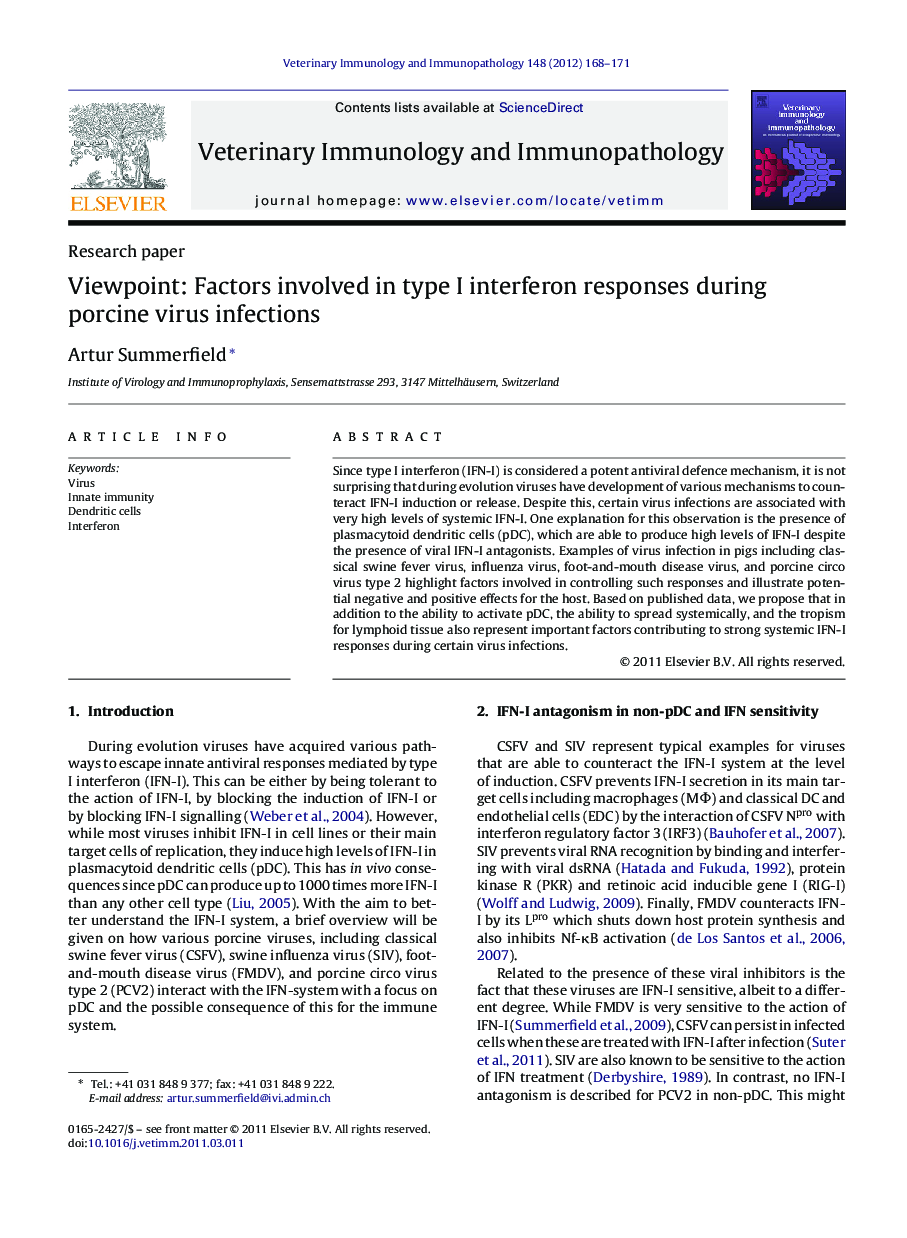| Article ID | Journal | Published Year | Pages | File Type |
|---|---|---|---|---|
| 5796958 | Veterinary Immunology and Immunopathology | 2012 | 4 Pages |
Since type I interferon (IFN-I) is considered a potent antiviral defence mechanism, it is not surprising that during evolution viruses have development of various mechanisms to counteract IFN-I induction or release. Despite this, certain virus infections are associated with very high levels of systemic IFN-I. One explanation for this observation is the presence of plasmacytoid dendritic cells (pDC), which are able to produce high levels of IFN-I despite the presence of viral IFN-I antagonists. Examples of virus infection in pigs including classical swine fever virus, influenza virus, foot-and-mouth disease virus, and porcine circo virus type 2 highlight factors involved in controlling such responses and illustrate potential negative and positive effects for the host. Based on published data, we propose that in addition to the ability to activate pDC, the ability to spread systemically, and the tropism for lymphoid tissue also represent important factors contributing to strong systemic IFN-I responses during certain virus infections.
